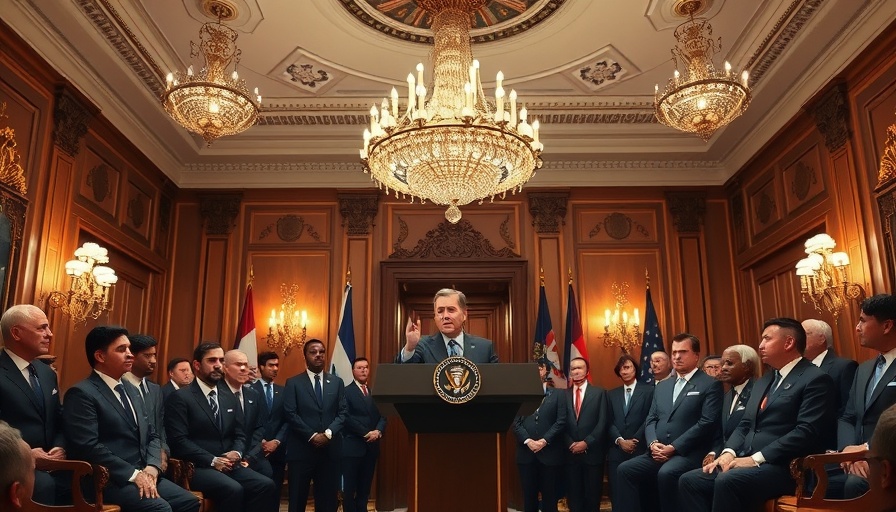
Renewed Talks: A Strategic Shift in U.S. Foreign Policy
In an era marked by geopolitical strife, the U.S. has recently signaled an intention to renew diplomatic engagement with Iran, following a military operation targeting its nuclear sites. This development comes as President Trump and his administration attempt to navigate the delicate balance between military action and diplomacy. The operation, described as 'Operation Midnight Hammer,' was executed with the goal of curbing Iran's nuclear capabilities, yet U.S. officials emphasize it was not aimed at regime change.
What Does This Mean for U.S.-Iran Relations?
With defense officials asserting that the U.S. does not seek war, the message is clear: diplomacy is still on the table. Vice President J.D. Vance and Defense Secretary Pete Hegseth have shared sentiments suggesting that military action may have created a pathway for renewed negotiations. The question now arises: can these military strikes lead to constructive dialogue, or will they exacerbate tensions?
Potential Risks and the Path Ahead
Despite the U.S.'s optimistic outlook, the reality remains complex. Iran possesses various methods for retaliation, from disrupting oil shipments in the key Strait of Hormuz to cyber warfare against U.S. interests. As a consequence, the situation could escalate, leading to a more intense conflict across the region. Understanding these dynamics is crucial for U.S. policymakers and analysts alike as they gauge the impact of military maneuvers on international diplomacy.
Historical Context: Lessons from the Past
This scenario is reminiscent of previous conflicts where military action preceded diplomatic efforts. While strikes may have curtailed immediate threats, historical precedents show that they often lead to increased hostility. For example, airstrikes in Libya in the early 2010s initially dismantled the regime’s capabilities but led to enduring instability and conflict. Drawing parallels can offer critical insights into what actions might maximize peace prospects without igniting further hostility.
The Balance of Diplomacy and Military Action
Striking the right balance between diplomatic efforts and military engagements has often been elusive in foreign policy. The U.S. must navigate carefully to ensure Tehran views renewed talks as a viable option rather than a sign of weakness. With both sides possessing reasons to pursue dialogue to avoid mutual destruction, the hope remains that they can find common ground.
Global Insights and Implications
The implications of U.S.-Iran relations extend far beyond the two nations. Stability in the Middle East is crucial for global markets, especially concerning oil prices. Major powers, including China and Russia, are closely observing the U.S. approach toward Iran, weighing their options in a rapidly changing international landscape. The outcome of this diplomatic push could influence U.S. standing worldwide and its relationships with allies and adversaries alike.
Conclusion: Navigating a Complex Diplomatic Landscape
The recent developments in U.S.-Iran relations signify a pivotal moment where military action may prompt a return to talks. As consultants, coaches, business owners, and decision-makers, it is vital to stay informed on these geopolitical shifts that can influence not just international relations but also global economic conditions.
In this interconnected world, understanding the nuances of diplomacy can provide strategic advantages in navigating your own business challenges amidst global developments. Keep an eye on evolving situations as they impact markets and opportunities.
 Add Row
Add Row  Add
Add 




Write A Comment